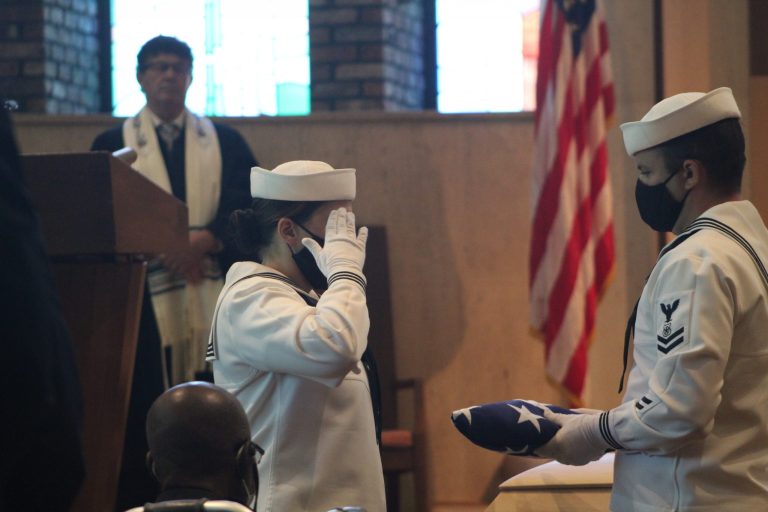
By Robert Pelaez and Samuele Petruccelli
Jack Weinstein, a longtime Great Neck resident who presided over several high-profile national cases in his five-decade career as a federal judge, died June 15. He was 99.
Once the nation’s longest-serving federal judge, Weinstein was appointed to the federal bench in 1967 and went on to become chief judge of the Eastern District of New York before his retirement in February 2020.
A World War II veteran, Weinstein worked on the NAACP Legal Defense Fund with Thurgood Marshall — who would later become the first Black U.S. Supreme Court justice — to litigate Brown v. Board of Education. The Supreme Court’s ruling in the landmark 1954 case made racial segregation in public schools unconstitutional.
As a federal judge, Weinstein presided over a case that resulted in a $180 million settlement for veterans poisoned by Agent Orange during the Vietnam War. He also heard far-reaching cases, involving tobacco, asbestos and handguns.
Weinstein entered senior status on March 1, 1993, but maintained a full docket of cases until his retirement last year.
He ended his career with the 11th-longest total service tenure among federal judges in American history. He was the last remaining judge appointed by President Lyndon Johnson.
Born in Wichita, Kan., in 1921, Weinstein moved to Brooklyn with his family when he was 5 years old. He received his bachelor’s degree at Brooklyn College in 1943 and graduated from Columbia Law School in 1948. After law school, Weinstein spent time as a clerk at the New York State Court of Appeals for Justice Stanley Fuld.
Weinstein also served as county attorney of Nassau County in the 1960s, writing briefs and arguing against gerrymandering.
Weinstein was a longtime honorary trustee at Temple Emanuel of Great Neck, where a private service was held last Friday. Senior rabbi Dr. Robert Widom delivered a eulogy, telling stories of Weinstein’s faith that guided him as a judge.
“Jack was famously vehement about the importance of being able to exercise judicial discretion as opposed to mandatory sentencing,” Widom said. “He combined a deep humility, as I saw him, with a fierce, unrelenting confidence in his beliefs.”
Widom recalled Weinstein’s requests to be treated as a regular guy, citing his frequent seating position in the back row of the temple. He recalled conversing with Weinstein on biblical instructions to ‘love thy neighbor’ and its accompanying caveats.
“He [Weinstein] said we may not be able to control our feelings, but justice requires we control our actions,” Widom said. “We may not be able to offer all of our neighbors love, but we are not permitted to withhold justice and fairness from the rule of law.”
Weinstein went further, asserting “if we avoid harming our neighbors in any way … there is yet the possibility of getting to know them better, which may generate a feeling that may lead to a genuine concern,” according to Widom.
When Widom asked if he believed that was a real prospect, Weinstein replied that he was simply offering it as a possibility.
Seth Weinstein, Jack Weinstein’s oldest son, also spoke, describing his father’s “extraordinary life” as he educated multiple generations of good lawyers and stood as a towering figure in the law.
“He sentenced people sitting not from the high bench but across the table,” Weinstein said. “Explaining to them what the sentence was, what it was for, and how they could redeem their lives.”
“We ought not to despair,” Widom said. “For here among us in mind awakened by his, in spirit uplifted by his, in hearts gentled by his, he lives.”






